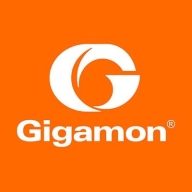


Gigamon Deep Observability Pipeline and FortiWeb Web Application Firewall are key players in network visibility and web application security markets. Gigamon excels in network traffic visibility, while FortiWeb is superior for application protection due to its robust security features.
Features: Gigamon Deep Observability Pipeline offers packet filtering, network traffic aggregation, and SSL decryption, providing enhanced visibility and reducing firewall loads. FortiWeb Web Application Firewall features machine learning for threat detection, extensive application security with DDoS protection, and strong SIEM integration, focusing on safeguarding applications against diverse security threats.
Room for Improvement: Gigamon could enhance its traffic flow analysis and intelligence features to improve overall visibility. It also needs to refine its integration with other network tools and simplify certain configuration processes. FortiWeb can improve its initial setup complexity, reduce configuration time, and enhance its user interface for better navigation and accessibility.
Ease of Deployment and Customer Service: Gigamon offers straightforward deployment and is known for efficient customer support, aiding users during setup and ongoing operations. FortiWeb's deployment is more intricate due to advanced security configurations, but it provides outstanding customer service focused on resolving security-related issues swiftly.
Pricing and ROI: Gigamon is competitively priced with a favorable ROI, driven by its visibility and traffic management benefits. FortiWeb, with higher initial costs, justifies its expense through superior security capabilities and extensive threat protection, offering a compelling ROI for those prioritizing application security.
WordPress security can be tricky, and that's where Cloudflare can be absolutely helpful for small businesses.
For the small project I was working on, using the basic tier provided a huge improvement at zero cost.
In terms of return on investment with Cloudflare, it costs my time to set them up, but basically once they're set up, it's done.
This would help us address issues promptly, especially during unforeseen events like DDoS attacks.
Cloudflare does not offer hands-on technical support to fix customer problems but rather a self-service model.
The key factor is the language in which the support is offered, which, in this case, is in Thai.
Their support is truly exceptional when I compare it with similar large-sized companies.
The back-end development team is available, and if any issue arises, they will help us immediately by providing solutions when contacted.
The technical support by Gigamon Deep Observability Pipeline is good because it has a local architect in my area.
It is a SaaS tool, but the fact that they have workloads deployed across the world proves that it is a highly scalable tool.
The tool offers very good performance, even during high-traffic periods.
I rate the solution’s scalability an eight out of ten.
For DDoS protection, I would not recommend Cloudflare.
I rate the solution’s stability an eight out of ten.
The service is very stable with no impacts during high-traffic periods.
There's a need for improvement in areas like AI-based DDoS attacks and Layer 7 WAF features.
Despite these challenges, overall, Cloudflare remains the preferred solution compared to Azure, AWS CloudFront, and Google Cloud Armor.
The timing aspect can lead to it being considered overpriced. This is a particular concern we have with Cloudflare, as they may struggle with accurately detecting the client.
If the GUI includes notifications and improved logging capabilities that allow us to see traffic and store logs for six months, that would be very helpful.
If some of my customers want to migrate from F5 to Fortinet Firewall, or the Fortinet WAF solution, there are some migration issues.
That's where Cloudflare shines for smaller businesses – it's ten times cheaper than Akamai.
I find it to be cheap.
I think they should consider reevaluating the pricing for support, as it can be quite high.
If the customer has multiple websites, the price reduces automatically because it depends on the number only.
The most valuable features of the solution are performance and security.
Techniques like minification and image compression reduce the size of assets, leading to better performance and faster user load times.
The solution has been able to compare it to the market, and I think the product has taken great strides in automating quite a bit of things, and they use a lot of AI.
Fortinet's pricing is way more competitive than Cisco or Palo Alto.
The features of FortiWeb Web Application Firewall (WAF) that have proven most effective in protecting web applications include web filtering, DDoS protection, geo-location blocking, and blocking SQL injection attacks.
The Pipeline's Comprehensive Insights into data flows have helped improve operational efficiency and security.



| Company Size | Count |
|---|---|
| Small Business | 46 |
| Midsize Enterprise | 8 |
| Large Enterprise | 25 |
| Company Size | Count |
|---|---|
| Small Business | 13 |
| Midsize Enterprise | 7 |
| Large Enterprise | 4 |
| Company Size | Count |
|---|---|
| Small Business | 3 |
| Midsize Enterprise | 1 |
| Large Enterprise | 5 |
Cloudflare is a highly-regarded Content Delivery Network (CDN) and a Distributed Denial-of-Service (DDoS) protection solution. The robust global connectivity cloud platform that is Cloudflare ensures users are able to connect to the Internet quickly, securely, and reliably. Cloudflare is one of the world's largest networks in the marketplace today. Using Cloudflare, businesses, educational entities, NGOs, vloggers, bloggers, and anyone else with an internet presence can experience more secure, faster websites and applications.
Currently, there are millions of Internet locations on Cloudflare, and the Cloudflare network
continues to grow every day by the thousands. The solution is able to fulfill the requests for
millions of websites seamlessly and serves on average 45 million HTTP requests per second.
Cloudflare has safe, secure data centers in close to 300 cities worldwide to ensure every
client request is filled as quickly as possible. It is Cloudflare’s edge network that makes this
possible by keeping content and other services as close to each client as possible, so the
information requests are always only seconds away.
Many organizations that work in democracy, civil society, human rights, or the arts are able to
access Cloudflare's highest levels of protection for free via Project Galileo. Additionally, official
election websites can be secured from hacking and fraud through Cloudflare’s Project
Athenian, also at no additional cost.
Cloudflare can also help organizations of all sizes develop a robust zero-trust strategy to
ensure the highest levels of productivity and profitability. Employees, stakeholders, and end users have a greater level of satisfaction and overall improved user experience, which can, in
turn, result in higher revenues and overall ROI. Zero-trust and BYOD (bring your own device)
access ensure end users and employees always have the best resources and technology
available to them at all times.
Cloudflare benefits
Cloudflare has many benefits. Some of its most valuable benefits include:
- Faster load times
- Robust DNS security
- Intuitive cloud Web Application Firewall (WAF)
- Free universal SSL
- Image enhancement
- Automatic browser caching
- Next-generation cloud load balancer
- Accelerated Mobile Pages (AMP)
- Rate limiting
- Minification
- Zero-trust capabilities
- Cost-effective
- Reduced carbon footprint
Reviews from real users
“Many websites require an SSL certificate because they sell stuff and want SSL. Cloudflare
comes with an SSL certificate built in. It's automatic. You sign yourself up for Cloudflare, and
an SSL certificate automatically protects your website. If you have a connection between your
website and your host, the server, Cloudflare, and the host, you don't necessarily need a
certificate.” Spencer M., Owner at Tech Exchange
“What I like best about Cloudflare is that my company can use it to trace and manage
applications and monitor traffic. The solution tells you if there's a spike in traffic. Cloudflare
also sends you a link to check your equipment and deployment and track it through peering,
so it's a valuable tool.” Daniel P., Network Engineer at Ufinet
“The most valuable feature of Cloudflare is the GUI. You are able to control the solution very
well through the interface. There is a lot of functionality that is embedded in the service.” PeerSpot user, Competence Center Manager at a tech services company
FortiWeb Web Application Firewall uses machine learning to reduce false positives, detects zero-day threats, and blocks DDoS attacks. It integrates with existing security infrastructure and provides SD-WAN capabilities, offering protection for websites and mobile applications.
FortiWeb WAF secures web applications with features like machine learning-based threat detection, DDoS attack mitigation, and robust integration capabilities. Additionally, it manages HTTP traffic and offers SD-WAN functionalities. Built for GDPR compliance, it supports API protection and bot mitigation while enabling secure mobile and cloud application access. Users implement it across multi-cloud environments and in data centers offering advanced security and compliance, including PCI DSS. Despite feature-rich abilities, users seek enhanced database updates, better enterprise integration, and more accessible analytics. Improvements in support response, documentation, and scalability are desired to strengthen its robust security offering.
What are the key features of FortiWeb WAF?FortiWeb WAF is widely implemented in data centers and financial industries, ensuring robust protection for web applications and sites. It supports multi-cloud environments on platforms like AWS and Azure, providing secure access while meeting compliance standards. Users benefit from enhanced application security and load balancing capabilities, making it a preferred choice in financial sectors that require VPN and SD-WAN consistency.
Gigamon Deep Observability Pipeline is a comprehensive network visibility solution that provides real-time insights into network traffic. It offers SSL inspection and mobile network monitoring for traffic monitoring purposes. The solution optimizes networks, aids in security inspection, and improves firewall performance. It is praised for its performance, power, straightforward integration, stability, and ease of initial setup.
With Gigamon, organizations can gain complete visibility into their network traffic, identify potential threats, and take proactive measures to prevent them. The solution is ideal for organizations of all sizes, including enterprises, service providers, and government agencies.
We monitor all Web Application Firewall (WAF) reviews to prevent fraudulent reviews and keep review quality high. We do not post reviews by company employees or direct competitors. We validate each review for authenticity via cross-reference with LinkedIn, and personal follow-up with the reviewer when necessary.